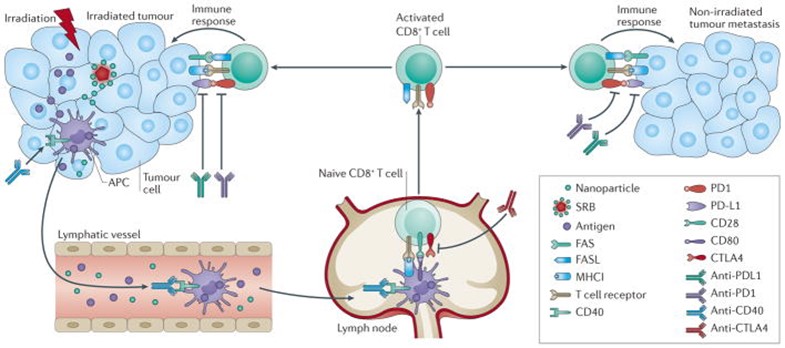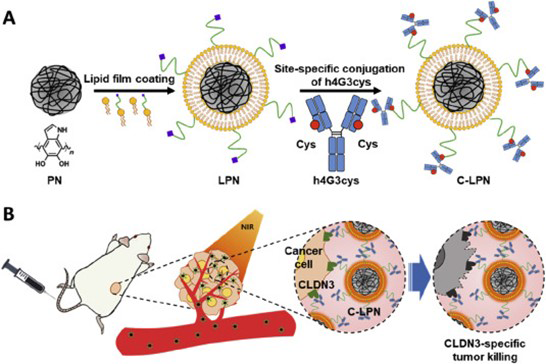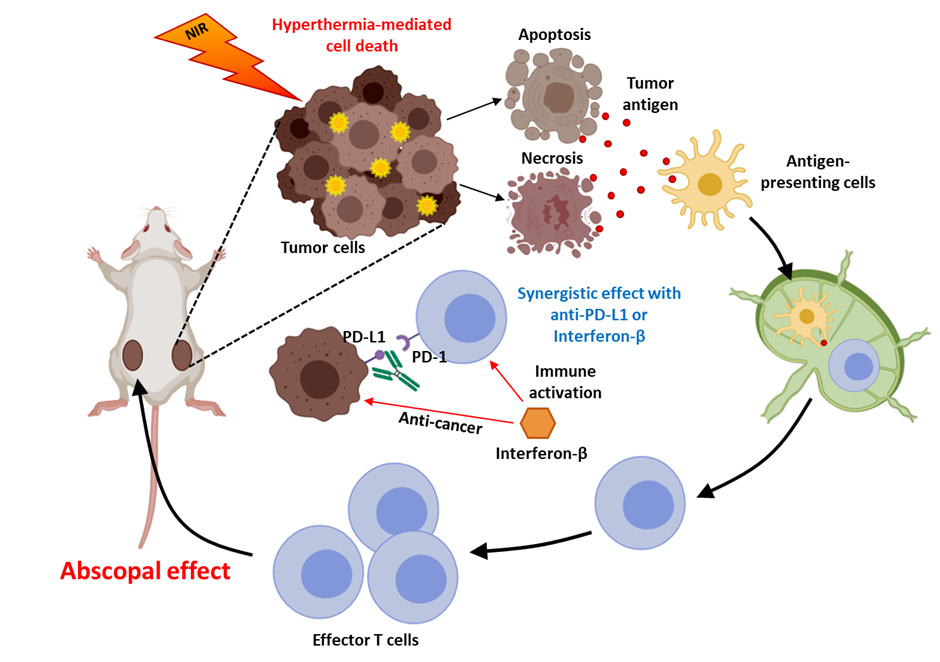Abscopal

1.Definition and research purpose of abscopal effect
The term “abscopal effect” originates from the words “ab,” meaning “away from,” and “scopus,” meaning “target.” It describes the phenomenon where radiation therapy directed at a primary tumor in a patient with metastatic cancer can also cause the regression of distant metastases. Tumor cells, when stressed or damaged, can produce tumor-associated antigens (TAAs). These antigens are recognized by antigen-presenting cells (APCs) and presented to CD8+ T cells in lymph nodes.
2. Current abscopal research topics in our lab
Photodynamic therapy (PDT) and photothermal therapy (PTT) are employed to induce the abscopal effect. These therapies utilize photosensitizers that generate reactive oxygen species or heat upon exposure to specific wavelengths of light, thereby killing cancer cells. By conjugating these photosensitizers with cancer-targeting antibodies, therapeutic efficacy can be enhanced. The goal is to induce the abscopal effect to treat metastatic tumors and simultaneously establish immunological memory to prevent cancer recurrence.


While PDT and PTT have shown potential in cancer therapy, the immune responses induced by these modalities are often insufficient to eradicate distant metastases and prevent disease recurrence. To overcome this limitation, our research team is exploring the synergistic effects of combining PDT or PTT with immunotherapies, such as immunostimulatory cytokines and immune checkpoint inhibitors. Through this approach, we aim to enhance the anti-tumor immune response and prolong patient survival. Moreover, our studies will provide valuable insights into the mechanisms underlying the combined therapeutic effects, thereby advancing the field of cancer immunotherapy.
